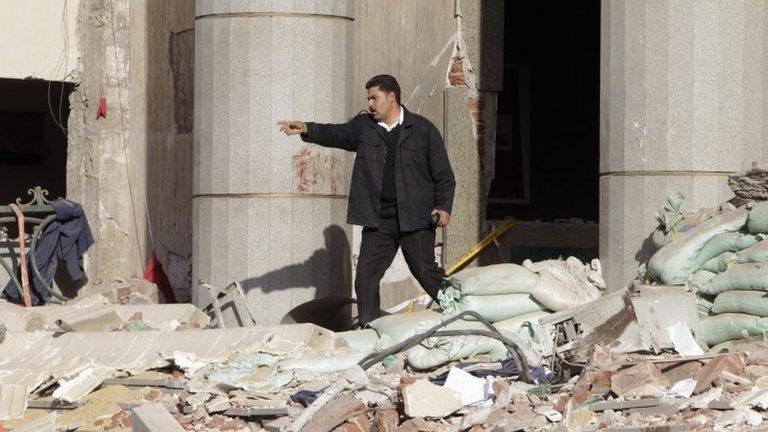Egypt facing long run of violence
- Published
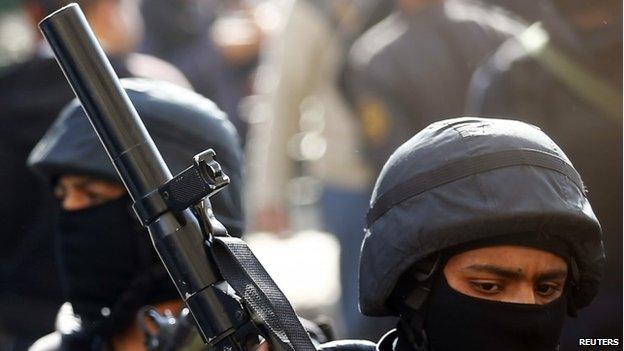
Egypt has witnessed an upsurge in violence, including in Sinai and Cairo, in recent years
For many Egyptians protests, bomb threats and explosions are an almost daily reality. Most of the protests are small. Many of the bombs do not go off or turn out to be false alarms, but for an unlucky few, they can be fatal.
Often it is the security services that bear the brunt of the blasts. At other times it is civilians or those planting the bombs.
Since the overthrow of the government headed by Islamist President Mohammed Morsi in June 2013, there has been a constant string of violent incidents, from rioting to bombings.
The Egyptian security forces accuse the Muslim Brotherhood of being behind the unrest.
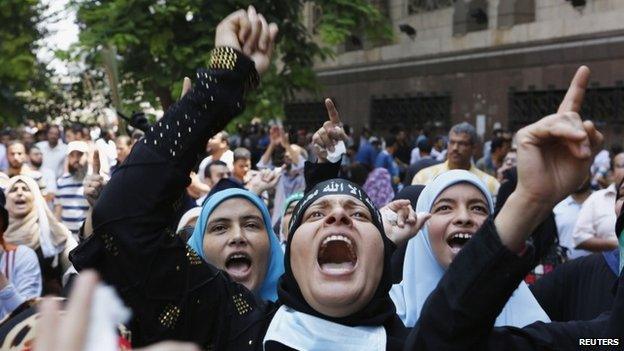
The Egypt authorities have rounded up thousands of Morsi supporters
Despite being Egypt's most established political group, the Brotherhood was banned by the current Egyptian government. Their supporters make up the bulk of the protesters.
'A new stage'
The government claims that the Muslim Brotherhood has now chosen to adopt violent tactics in their opposition to Egypt's rulers, and are directly behind attacks targeting the security services.
By way of proof, they point to an article posted on the Muslim Brotherhood's Arabic-language site in January, in which the group calls for its supporters to engage in jihad.
"Everyone should be aware that we are on the threshold of a new stage where we recall our latent power and evoke the meanings of jihad," the article stated.
''We should prepare ourselves and our wives and children as well as our followers for a restless, long jihad in which we should seek the status of martyrs."
However, the Muslim Brotherhood rejects the accusations that it is behind the recent surge in attacks.
"Our resistance is peaceful," said Mohamed Sudan, Foreign Relations Secretary for the Freedom and Justice party, the political wing of the Muslim Brotherhood, which was also banned in Egypt last year.
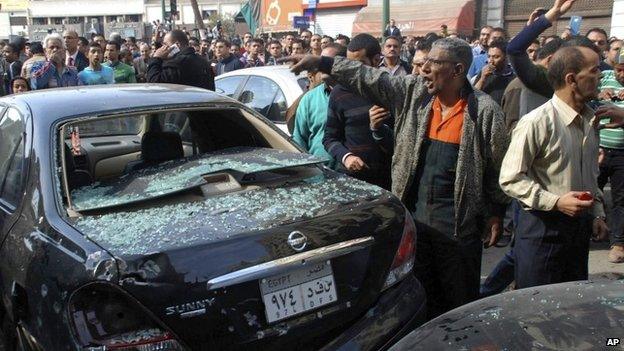
The Revolutionary Punishment group claimed responsibility for an attack on 2 March At Cairo's High Court
Calls for violence
As for who is behind the attacks, Mr Sudan says, the government has plenty of adversaries:
"[President Abdul Fattah al-] Sisi has new enemies, unrelated to the existing organisations and movements, as a result of the state's violence and terrorism," he said.
In this respect, it would seem he is right.
A number of groups set up in the last few months have called for violence against the state.
The largest, founded on 24 January 2015, is Revolutionary Punishment.
"The time has come for the revolution to continue its true path and do away with dictatorial and oppressive regimes," the group announced in a founding statement on Twitter.
"There is no way to achieve such an aim without taking up weapons," it added, while rejecting any links to established political parties.
Another group, called the Popular Resistance Movement, seems to take a similar view. Set up in summer 2014, it has claimed responsibility for various attacks on police checkpoints, Egyptian institutions and banks.
'No space for protest'
Security experts who support the government draw links between the increase in lethal violence in Egypt and the latest political developments in the country.
Mohamed Nouraddin is an advisor to the Interior Minister. In his opinion, the aim of the violence is to bring about the failure of the current political leadership.
He believes the militant groups are thinking, "we'll bring down your economic conference [in Sharm el-Sheikh on 13 March] and we'll bring down your tourism industry so that we can increase the problems you face."
In that way, he says, they plan to "bring down this regime like their one was brought down. But it's not going to happen."
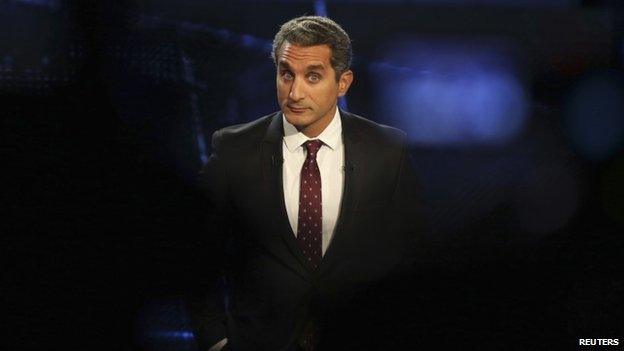
Satirist Bassem Youssef ended his popular TV show after coming under pressure from the military establishment
The reasons for the increase in violence are numerous, say human rights activists. They believe it is likely that it will continue until both sides change their policies towards their adversaries.
"There is no public space for protest, for one to express their views," said Sherif Mohaiddin, of the Egyptian Initiative for Personal Rights.
"The television stations are being squeezed, some notorious programmes have been closed down altogether - satirical and critical programmes in particular. All the voices of opposition have been closed down and the media has been mobilised in support of the regime," he said.
And with the increase in violence on the streets of Egypt, the prospects for a more peaceful future look increasingly slim.
- Published5 February 2015
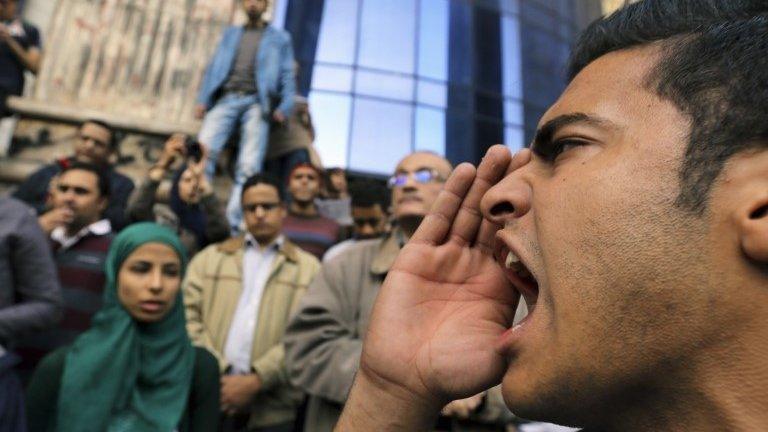
- Published24 January 2014
